Apple Daily executives arrested in Hong Kong and $3 million in assets seized in press freedom crackdown
Press freedom is “hanging by a thread” in Hong Kong as police took the unprecedented step of arresting dissenting newspaper executives.
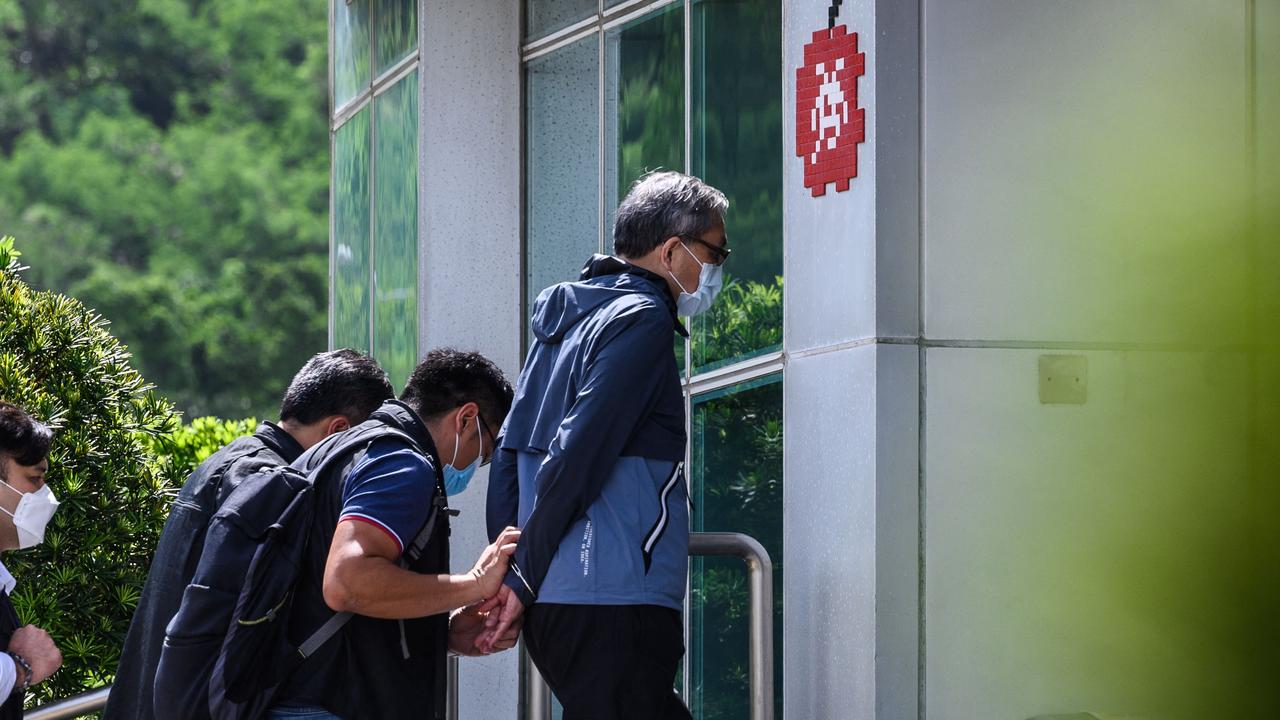
Hong Kong national security police have conducted a fresh raid on pro-democracy newspaper Apple Daily, arresting five executives and carting off computers in the latest blow to the outspoken tabloid.
The paper and its jailed owner Jimmy Lai have long been a thorn in Beijing’s side with unapologetic support for the financial hub’s pro-democracy movement and scathing criticism of China’s authoritarian leaders.
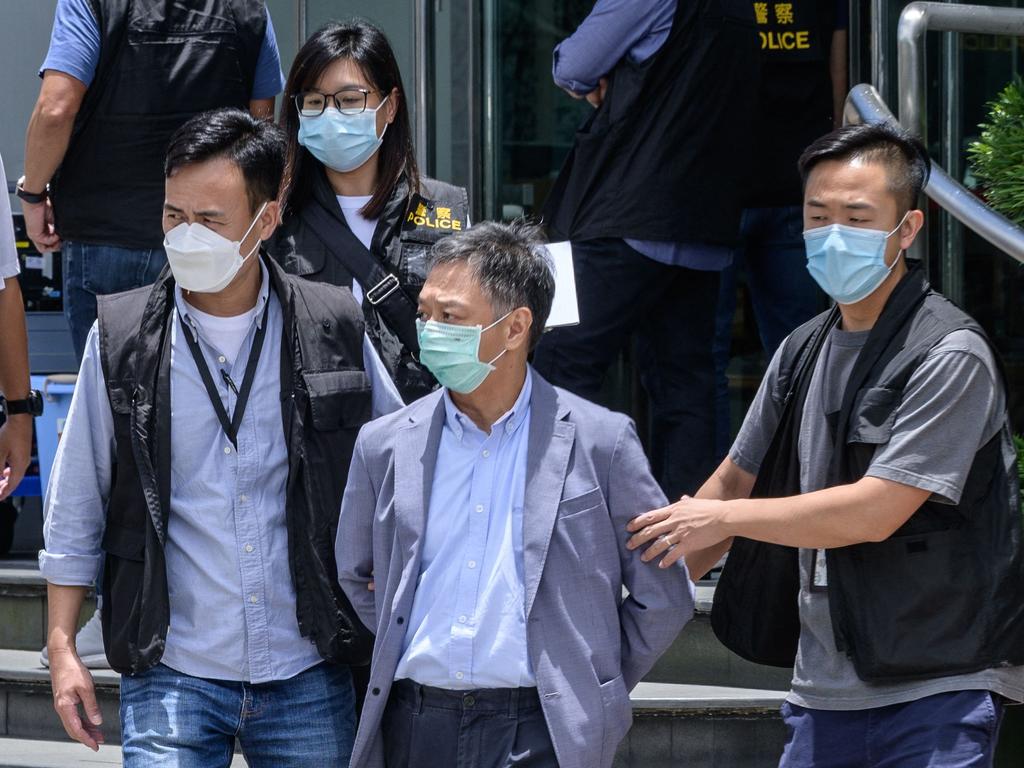
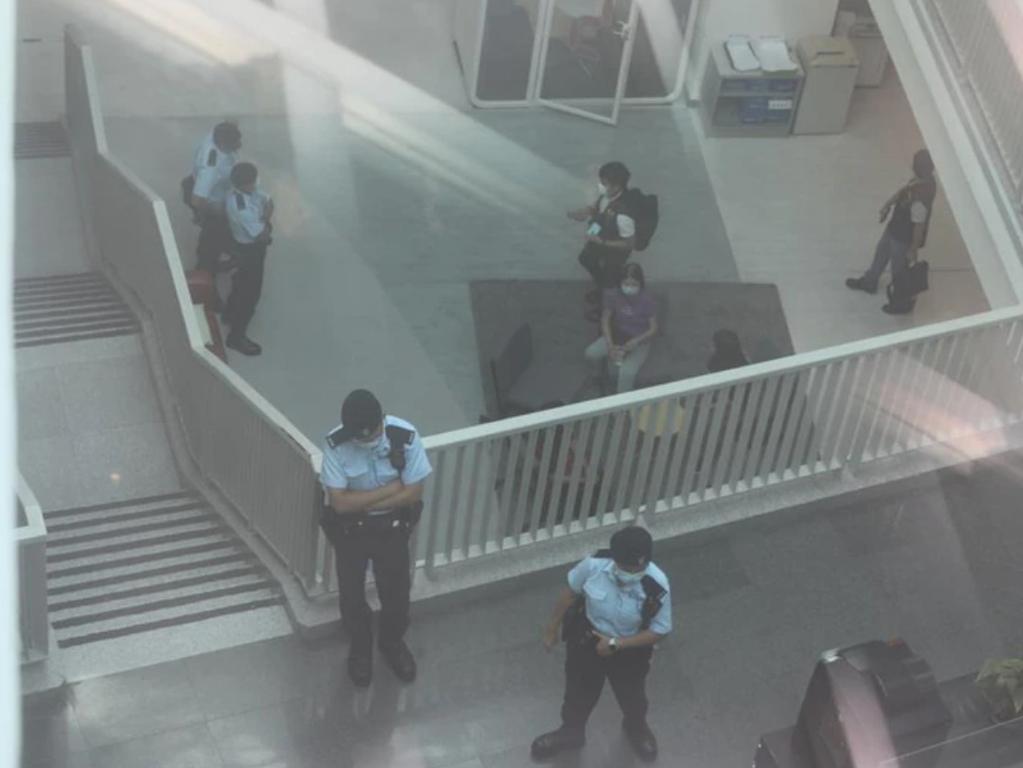
More than 500 officers conducted a dawn operation which authorities said was sparked by articles Apple Daily had published “appealing for sanctions” against Hong Kong and China’s leaders.
It is the first time the content of media reporting has sparked arrests under the national security law.
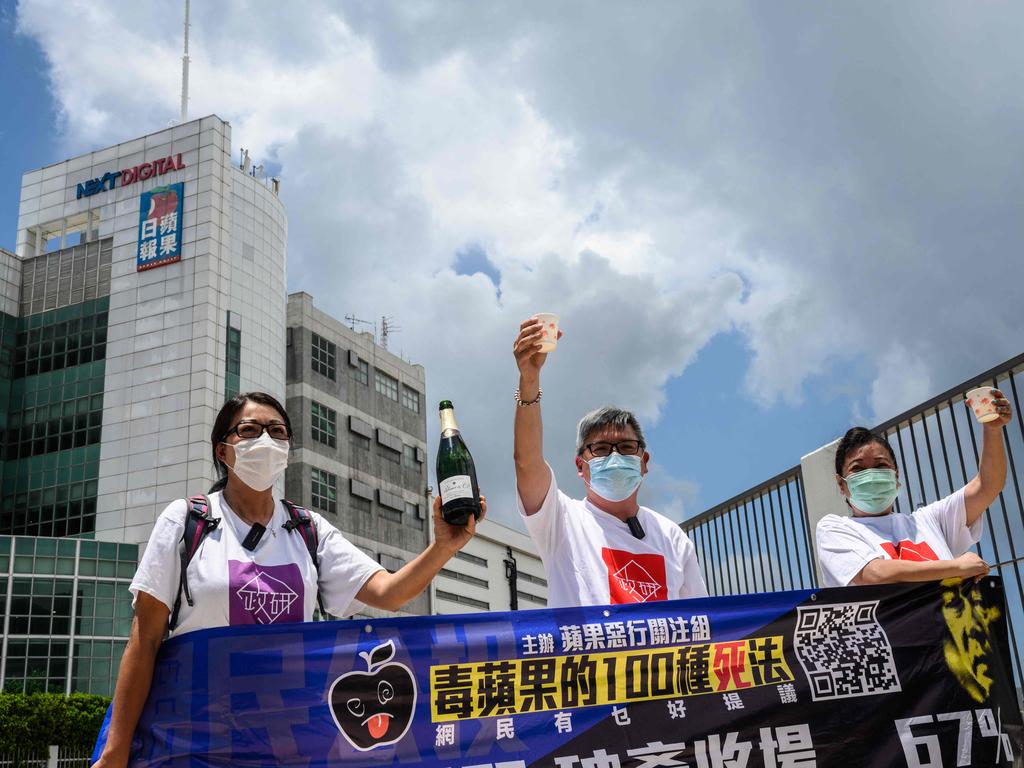
In a message to readers, Apple Daily warned Hong Kong’s press freedoms were “hanging by a thread”, but vowed to “stand tall”.
Its union described the operation as a “wanton violation of press freedom” that “displayed how much police power has inflated under the national security law”.
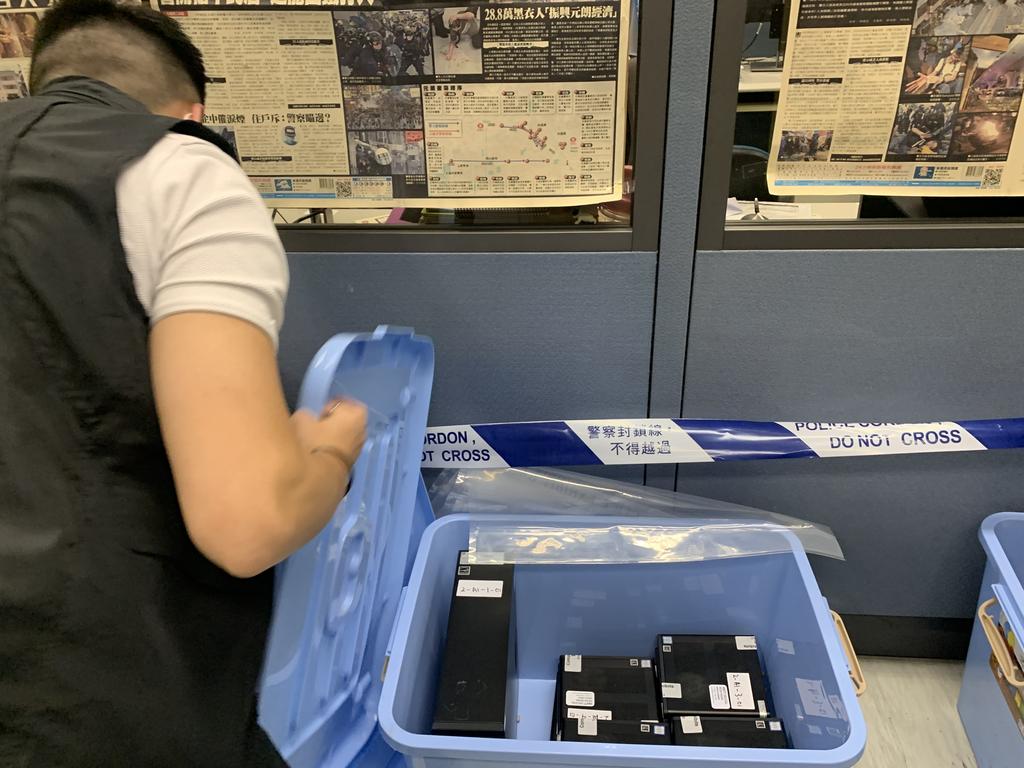
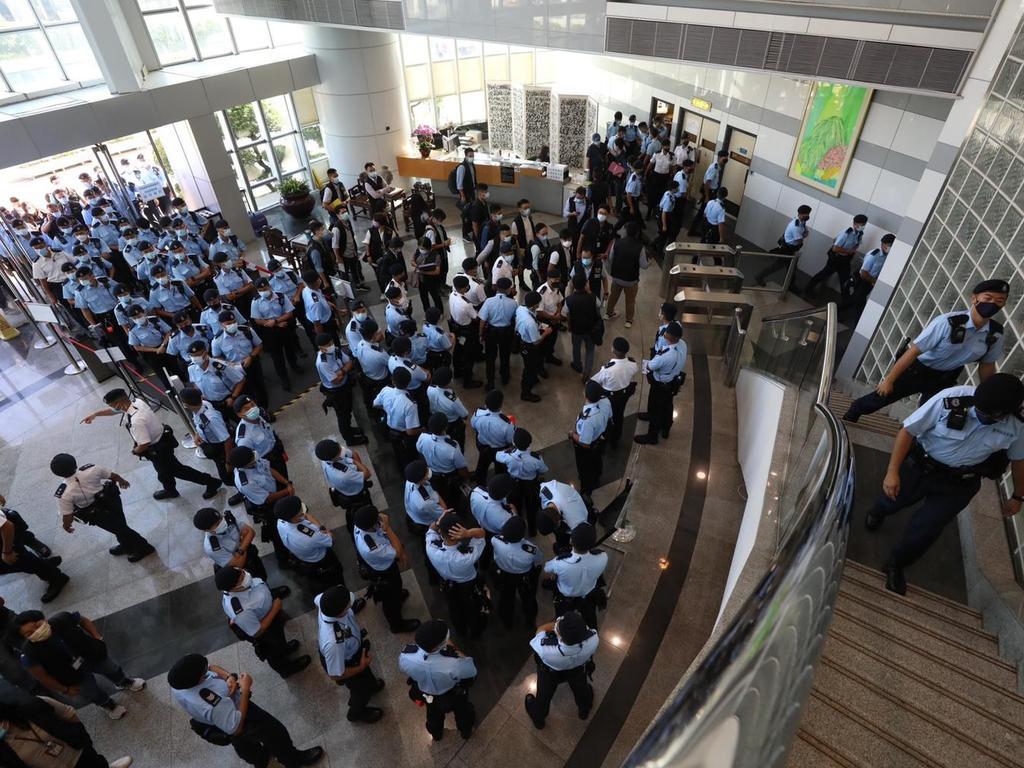
British foreign secretary Dominic Raab said China was using security legislation in Hong Kong to “target dissenting voices, not tackle public security”.
“Freedom of the press is one of the rights China promised to protect in the Joint Declaration and should be respected,” he said, referring to the deal under which the city was returned to Chinese rule in 1997.
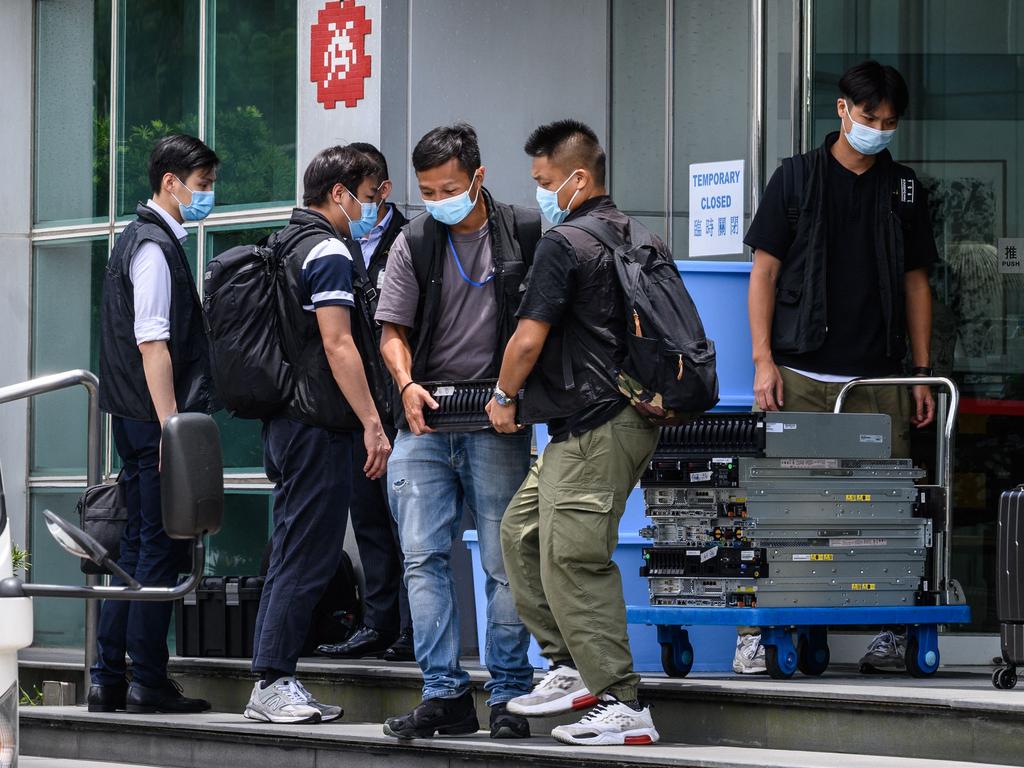
Hong Kong police said the five Apple Daily executives were arrested for collusion with a foreign country or external elements “to endanger national security”.
Authorities also seized $HK18 million ($A3 million) in Apple Daily assets, the first time a national security law seizure order has been made directly against a Hong Kong media company, rather than an individual.
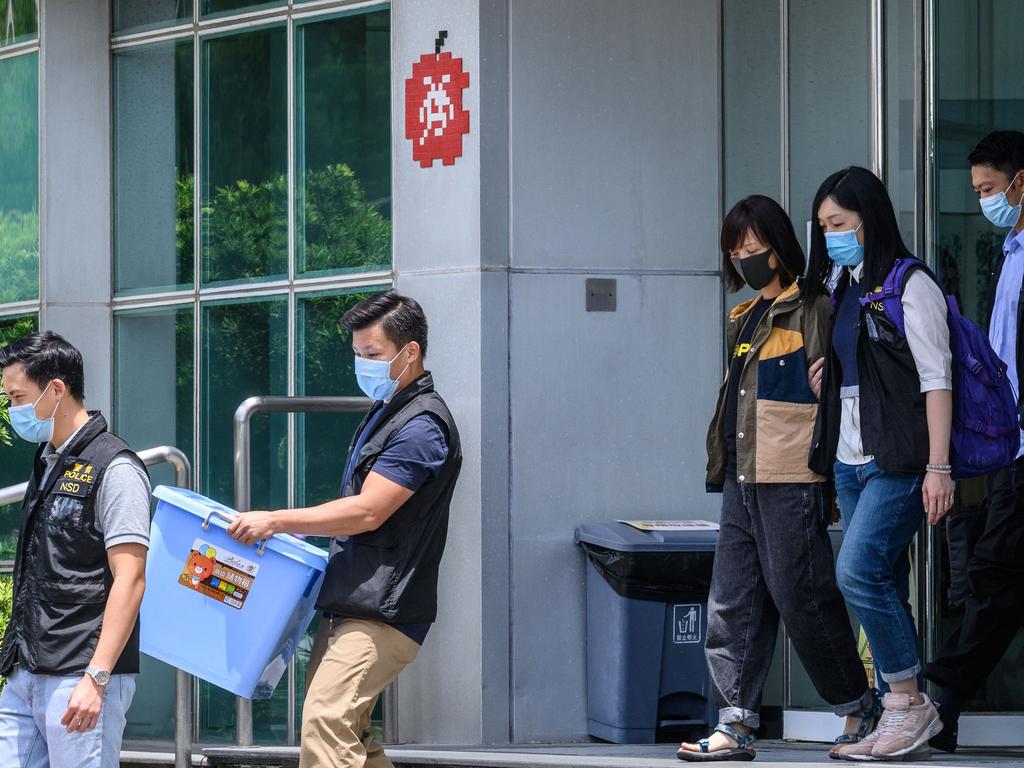
Hong Kong has long been a major international media hub but its press freedom ranking has slipped dramatically in recent years.
Secretary for Security John Lee declined to say which articles breached the security law or whether those who shared the articles online, or bought Apple Daily or its shares might be at risk.
“Our actions are not targeting press freedom or journalistic work,” he added. “We target perpetrators who would use journalistic work as a tool to engage in acts that endanger national security.”
Sharron Fast, a lecturer at the University of Hong Kong’s journalism school, described Mr Lee’s comments as “ominous and incorrect”.
“It is precisely the role of a journalist in a free society to report on political views, even those that might be unwelcome,” she said.
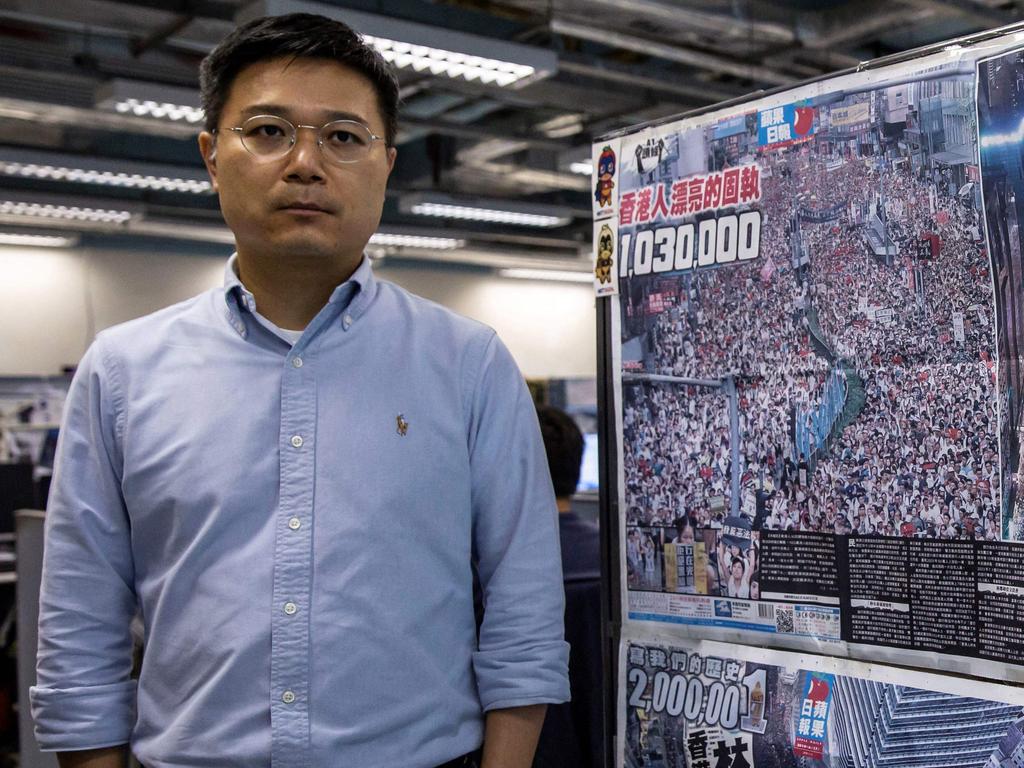
Among the arrested executives were chief editor Ryan Law and CEO Cheung Kim-hung, who were both led into the building in handcuffs.
Hong Kong’s stock exchange said trading in shares of Next Digital – the publisher of the newspaper – had been halted.
After the raid, reporters returned to a semi-gutted newsroom with the paper saying 38 computers were taken away as well as hard drives and reporters’ notepads.
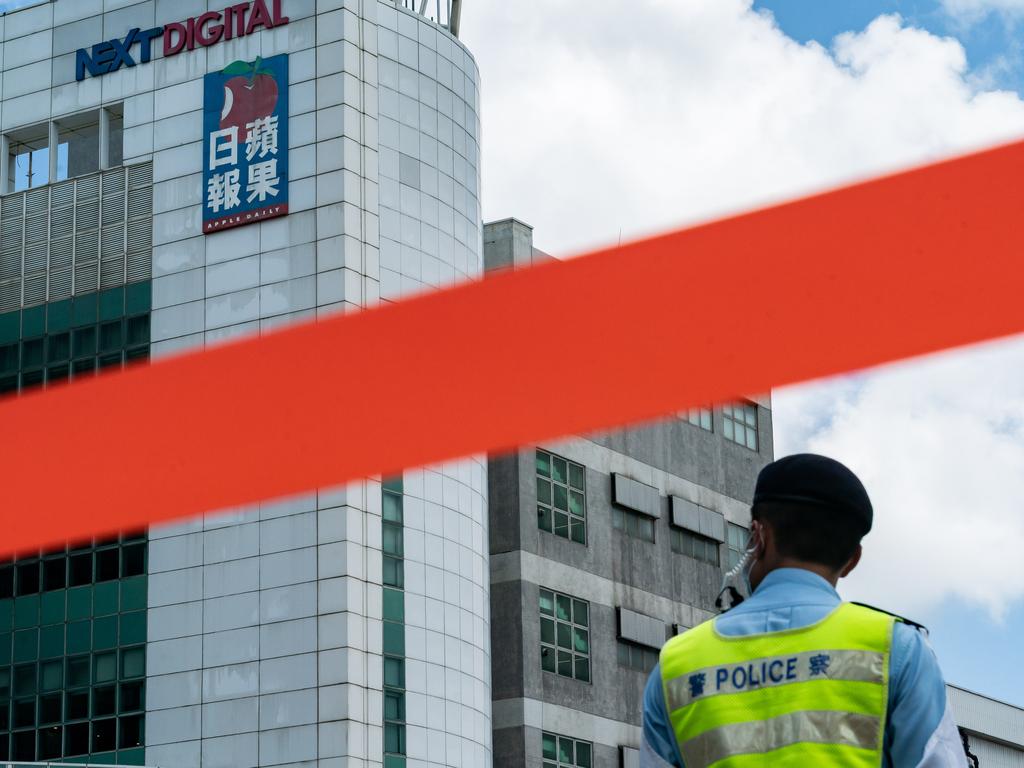
A photographer, who gave just a nickname KT, said the latest operation had “created terror for every Apple Daily worker”.
“If I get arrested for reporting the news, I will have no regrets,” he said. Executive chief editor Lam Man-chung, who was not among those arrested, said that staff would “try all our best to publish newspapers for tomorrow”.
The security law is the speartip of a sweeping crackdown on Beijing’s critics in Hong Kong since 2019’s huge democracy protests.
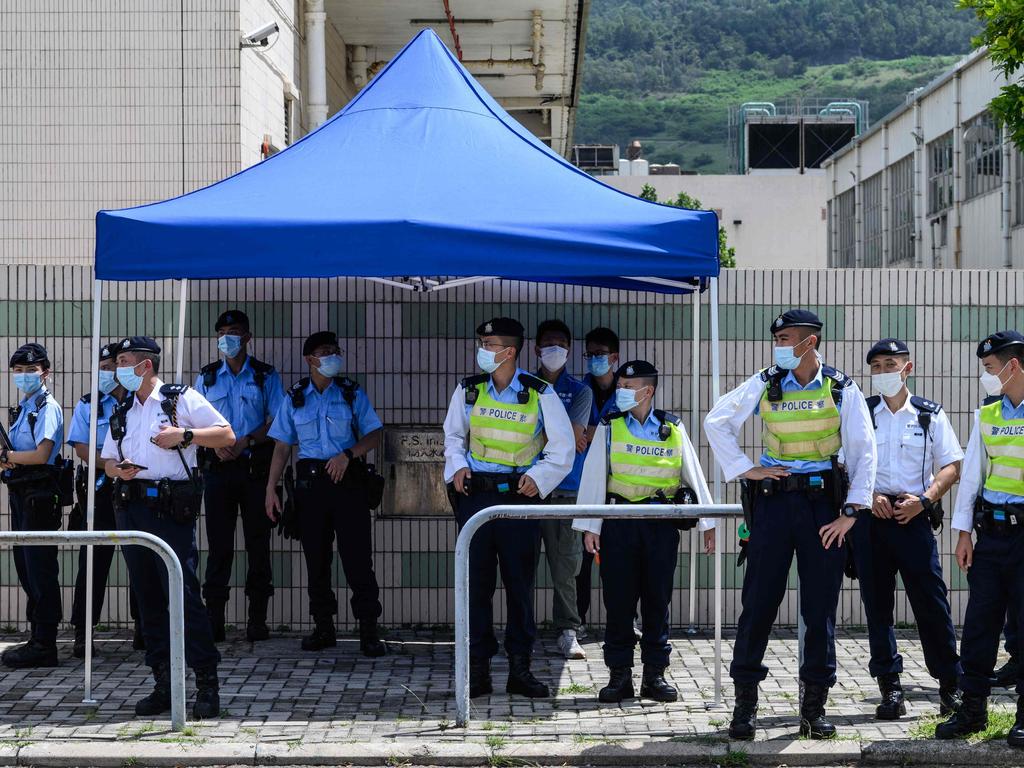
It has criminalised much dissent, given China jurisdiction over some cases and awarded authorities a suite of powerful new investigation powers.
Those convicted face up to life in prison, and most are denied bail after arrest.
Thursday’s raid was the second on Apple Daily in less than a year. The tabloid’s billionaire owner Mr Lai, 73, was charged with collusion after hundreds of officers searched the paper’s newsroom last August.
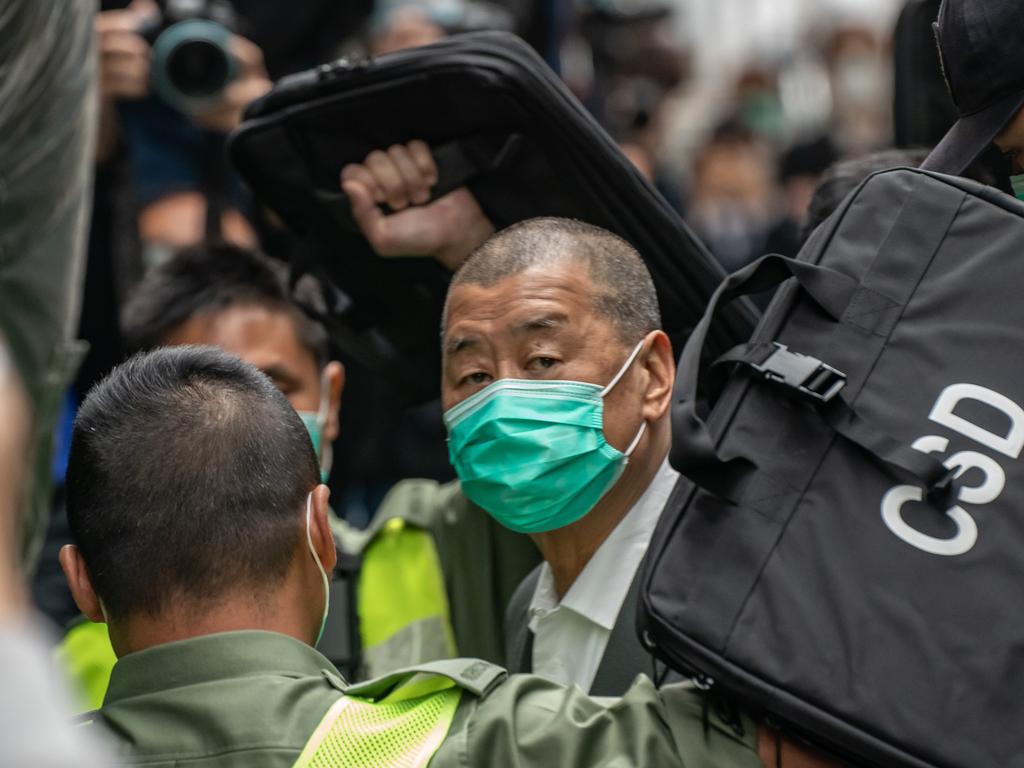
He is currently serving multiple jail sentences for attending various protests. Beijing has made no secret of its desire to tame the paper, with state media routinely describing Mr Lai as a “traitor” and a “Black Hand”.
Last month, police used the national security law to freeze Mr Lai’s bank accounts and his majority shares in Next Digital.
Until Thursday’s raid, authorities had left the company’s assets alone. It is unclear whether Apple Daily will now be able to pay its staff.
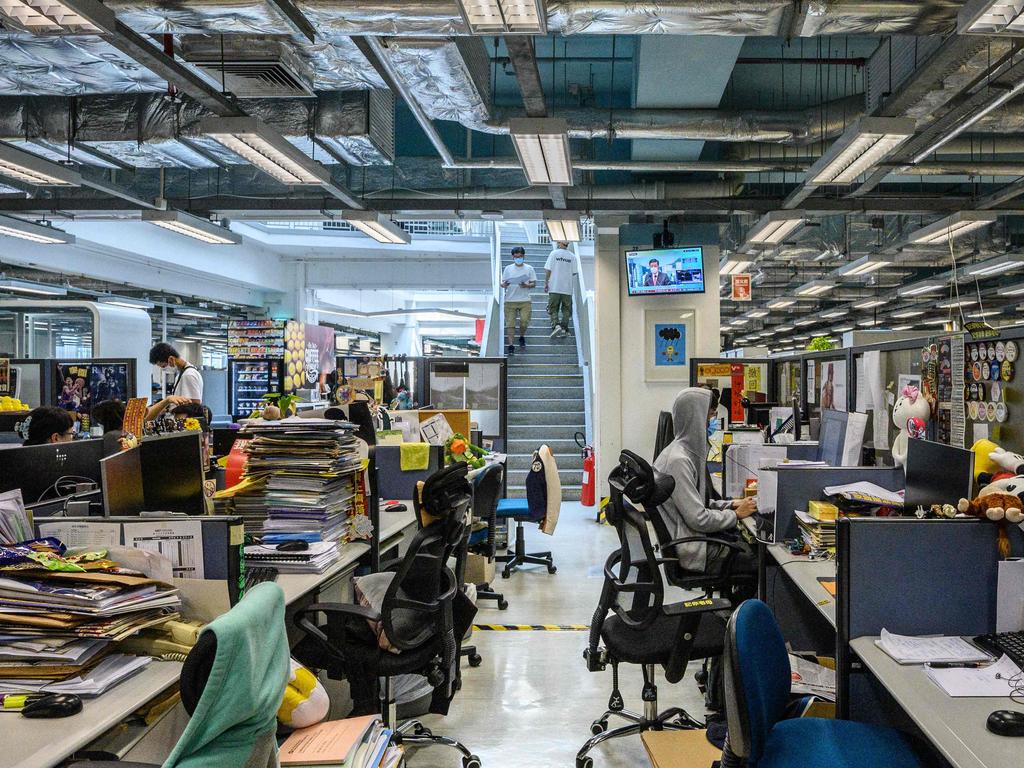
China says the security law was needed to return stability to the international financial hub.
Critics, including many Western nations, say it has been the final nail in the coffin for the “One Country, Two Systems” promise that Hong Kong could maintain certain liberties after the 1997 handover.
More than 100 people have been arrested under the law, many from among the city’s best-known democracy activists. Others have fled overseas.



